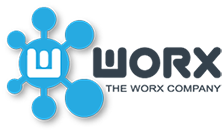The first day of Drupalcon Szeged is underway, and what a day it's been. We've already heard from Dries Buytaert about the current State of Drupal, and the future of Drupal, and now I have the pleasure of listening to Rasmus Lerdorf, the creator of the PHP programming language. It's opportunities like these that really make Drupalcon (and Drupal in general) such an amazing experience that would simply be impossible with a closed source solution.
I'm not going to get on the "closed source is bad" soap box today because there's simply too many other cool things to talk about. I've already attended a Panels session today, which was fantastic. I've played with Panels a number of times, but taking it to that next level that's more than JUST presentation, a level that actually cares about the context of the page... that's something I've yet to have a chance to do. Lots of very cool information on what panels can do today, and also what it's going to do tomorrow. A lot of really cool descriptions of what will probably be possible either late in the 6 development cycle or early in the 7 cycle. CCK is changing to what they're calling "Fields" in the next release, and that release SHOULD allow us to add fields to just about anything... users, comments, nodes, whatever. With that in mind, there's some interesting interaction that panels 3 and fields will possibly have together... even going so far as to enable us to have what amounts to inline editing per field, which is really exciting. It's easy to look at systems that already have it (.net nuke) and say "meh"... but knowing that it's coming down the pipe for us potentially... is exciting. It's not exciting as a developer, I mean it's cool, but not exciting. It's exciting as someone who works with customers who aren't necessarily technically minded.
When we switched to the Zen theme, we got a number of really nice features for our customers... namely the ability to get to the block and menu edit pages from an individual page that views them. Taking that to the next level so that users could potentially edit a static block, or title, or body FROM the viewing page makes life WAY simpler when it comes to teaching a user how to use the system. That alone could increase the user-friendliness of Drupal significantly. As such it's a significant point of interest for me and I hope to talk to Sam Boyer about it a bit more before Drupalcon is over.
Rasmus Lerdorf's keynote has been incredibly interesting. He's been comparing different frameworks to show how their code stacks up and what sort of performance you can get from which frameworks. Drupal was (obviously) on his list and the information provided is interesting if not entirely applicable today. Some members of the audience have some pretty good ideas on how to significantly alter his numbers, so I'm hoping to see what his benchmarks against the current Drupal 7 might look like. Hopefully we might actually get some update that tells us such things but for an exercise it was interesting to see exactly what other frameworks are doing and how they compare to Drupal.
On a completely different note: for the last few months I've been attempting to come up with a good analogy for Drupal's hook system. Thus far I've failed... miserably I might add, but I had the pleasure of speaking to some other folks who teach Drupal professionally (Lullabot) and a big "Thank you" goes out to Addison Berry who handed me a brilliant analogy for this which I will now forever use. The analogy essentially goes like this: Imagine Drupal is a train station, and there are all these various trains that run in order to produce the final viewable webpage. Each of these trains have an engine that Drupal itself provides, and these trains run down their given pathways. These pathways take them through all the various enabled modules. Modules may have various train cars they need to attach to that engine, and so these trains pick up the cars provided by each module and build up a chain of cars that ultimately provide the necessarily components to build your final product... all controlled by the Drupal train station. I think this is a really brilliant analogy and I'll be using it from this point forward.
Other sessions for my day included the testing and menu sessions, which have all been quite interesting in their own ways. Testing is especially interesting as I would very much like to chip in in this regard, but the barrier to entry for the uninitiated is higher than I've had time to spend. However today was a great foundation and you can be sure I'll be attending the next testing session tomorrow to get some real live hands on experience (and pancakes).
In closing, the first day of the con has been incredibly informative. I have a bof (birds of a feather) session that I'll be directing tomorrow so I need to make sure I'm all setup and ready to go for that before the morning, however most of what I need is already created and ready to go, so a new Drupal install to demonstrate the system and I should be ready for the morning. Lots of great networking and re-networking going on here with new and known faces. Tomorrow, I'm sure will be more of the same.
Great con thus far.
